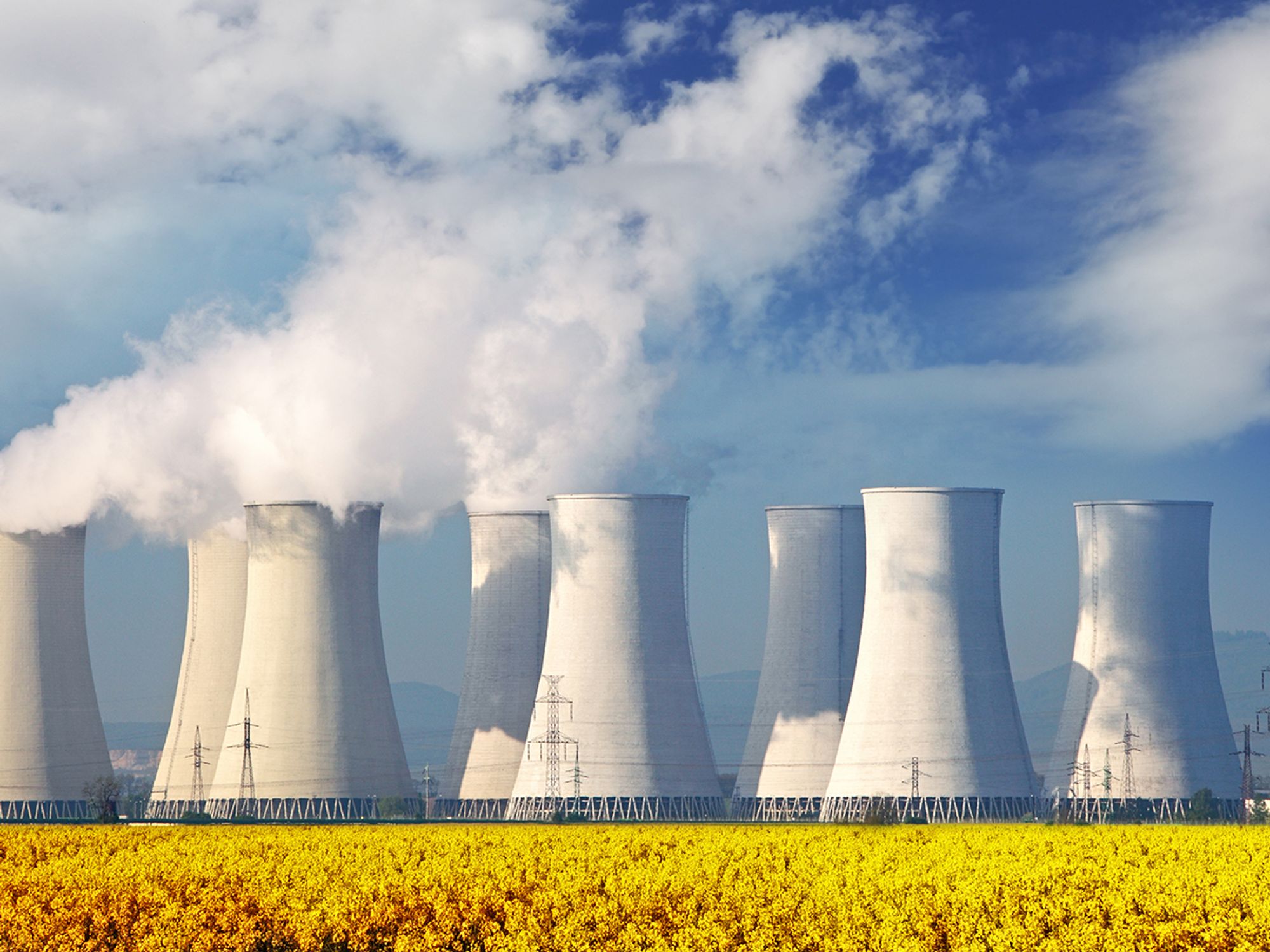Nuclear

- Nuclear energy is when atoms split apart and make electricity.
- Nuclear reactors do not create air pollution or carbon dioxide while running, unlike power plants fired by fossil fuels.
Nuclear energy is when atoms split apart and make electricity. All power plants change heat into electricity with the help of steam. At nuclear power plants, the heat used to create steam is made during fission, which is when atoms break apart. The atoms release heat during this split. It is called a chain reaction, when the method is repeated. In a nuclear power plant, uranium is used in the process of fission.
The heat produced from fission boils water and makes steam to rotate a turbine. As the turbine turns, the generator rotates, and its magnetic field makes electricity. Electricity can then be brought to a business for energy use.
Nuclear energy accounts for roughly 20 percent of the electricity in the United States. So, one out of every five homes in the nation can switch on their lights because of a minuscule atom! The U.S. Nuclear Regulatory Commission (NRC), monitors and controls nuclear power plants. They ensure that they are safe for workers and those who live close by, and for the overall environment.
Nuclear reactors do not create air pollution or carbon dioxide while running, unlike power plants fired by fossil fuels. Although, the methods for excavating and refining uranium ore and creating reactor fuel all need big energy quantities. Also, nuclear power plants have great quantities of metal and concrete, which need a lot of energy to produce. If fossil fuels are used for excavating and refining uranium ore, or if fossil fuels are used when making the nuclear power plant, then emissions from igniting those fuels could be linked to the electricity that nuclear power plants create.
A main environmental issue connected to nuclear power is the production of radioactive wastes such as uranium mill tailings and used reactor fuel. These materials can stay radioactive and a human health hazard for thousands of years. Radioactive wastes are subject to unique rules that regulate their handling, transportation, storage, and disposal to safeguard the health of humans and the surrounding environment.
